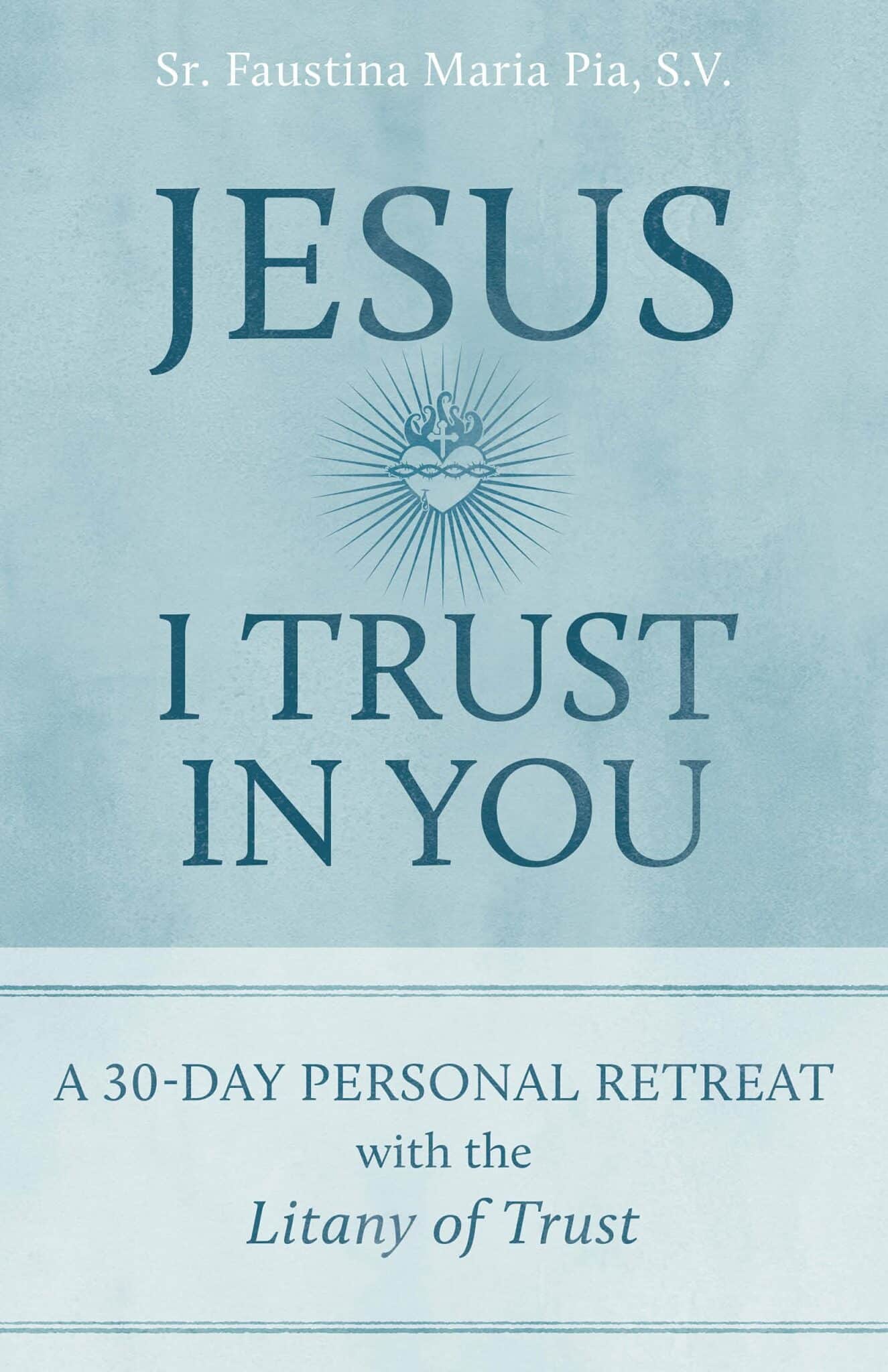
Jesus warned his disciples that they would be like sheep in the midst of wolves—or as the psalmist put it, like lambs to the slaughter (Ps 44:22). Thus they should be as “shrewd as serpents and innocent as doves” (Mt 10:16).
In the original Greek, the serpents are described with a cognate of phronesis, practical reasoning. It’s an earthy kind of reasoning, rolling up its sleeves to make judgments about what best to do in a changing world.
So it’s not enough to be pure; we also have to be shrewd. The Lord asks us to be childlike (Mt 18:3) but also praises the steward (Lk 16:9) for his phronesis in making friends by “unrighteous Mammon.”
Jesus, I Trust in You: A 30-Day Personal Retreat with the Litany of Trust by Sr Faustina Maria Pia SV is an excellent modern devotional guide to inculcating the dovelike, childlike trust God asks of his disciples, in a 21st-century idiom.
It’s a 30-day self-guided retreat, in which each day builds on a petition from the Litany of Trust, a litany written by the author after she tasted God’s grace in prayer.
“I had an experience which is impossible to capture in words,” Sr Faustina Maria Pia writes.
“It was as though Jesus were gently lifting my chin to look at Him. It was as if He were saying, ‘I don’t want you to give your ‘yes’ to a set of circumstances, but to Me.’”
Trust, for the author, is about giving our “yes” to God rather than to a plan, in the knowledge that God is eminently trustworthy, because he is ultimately loving and desirous of being loved.
“A lot is at stake,” the author writes. “If we do not trust God, we’ll miss the love He is pouring out for us.”
Nothing therefore should stand between us and the love of God: “Unfulfilled promises, the abuse of authority, and encountering our own limitations, as well as betrayals on personal and corporate levels … a culture ravaged by dishonesty and relativism…”
Our own false beliefs and disordered attachments make trust hard, and much of the book is about letting these go—especially our beliefs that we are not loved by God, or not worthy of love without achievements.
The 30 instalments that comprise Jesus, I Trust in You, mix stories from Scripture and the tradition with anecdotes from the Sisters of Life on mission. Each day ends with a moral exhortation about trust, and an invitation to further reflection and action.
The book’s themes and sources are thoroughly orthodox. Its recommendations encourage the reader to think and feel with the Magisterium of the church, and frequent the sacraments.
The approach will be broadly familiar to Catholics of the St John Paul II era, and may be particularly useful for teenage and young adult children of JPII-vintage parents.
Certainly both the book and the litany from which it is derived speak to the burned-out feeling of our current moment. When self-esteem and emotivism have run out of power to motivate, what else can we do but admit our need for love?
So unlike de Caussade’s classic Abandonment to Divine Providence, which recommends surrender, Jesus, I Trust in You is a much more active exhortation to trust. It is less quietist, and more Marian, leaning into the joy of saying “yes.”
It will be enjoyed by readers of Sr Maria Faustina Kowalska, from whom the book’s theme is largely drawn: “The more a soul trusts, the more it will receive.”
The sisters’ infectious love and zeal for God puts the lie to much sophisticated doubting. In many cases the answer simply is to love more, to trust more, to be simpler, to be more innocent.
One wishes, however, for a few interludes of serpentine phronesis among the 30 days of dovelike innocence, to leaven the “retreat” and bring the reader down to earth.
While few Catholic Weekly readers are going like sheep to the slaughter, we do have to be competent at work, be patient with difficult children and relatives, and make good decisions when resources and time are limited.
So yes, it’s true that a Christian cannot trust God too much. Yet life ultimately is not lived on retreat, but only in the flow of uncertainties. Experience seasons what trust supplies, and Christians in every age have had to grapple with the need for (and benefit of) a bit of worldly wisdom alongside supernatural faith.
Such is the paradox of trust on this side of the apocalypse, as the manufacturing guru W. Edwards Deming once wryly put it: “In God we trust. All others must bring data.”
